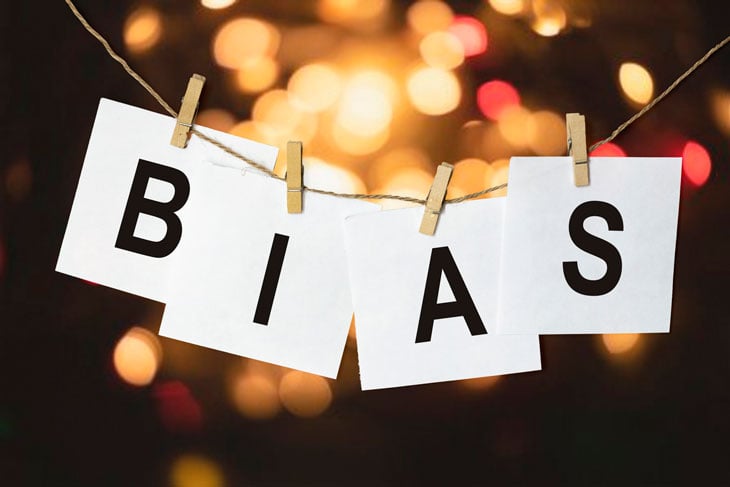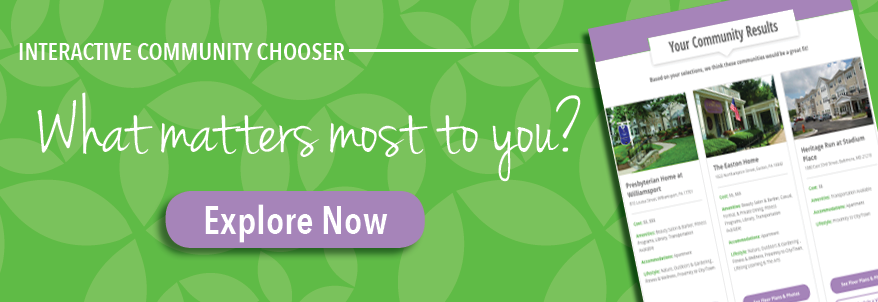
Diversity, Equality, Inclusion and the Importance of Belonging: Understanding Bias
Updated from the original publication on April 1, 2021.
As Presbyterian Senior Living continues on our journey towards belonging, we acknowledge that everyone has a bias. It is a part of who we all are. There are multiple resources available that speak to bias and help you understand bias and its role in the workplace or personal relationships.
A general definition of bias is tending to lean in a certain direction, either in favor of or against a particular thing. Biases may be held by an individual, group, or institution and can have negative or positive consequences.
An example of positive bias would be choosing only to eat foods that are considered healthy or staying away from someone who has knowingly caused harm.

There are two types of biases: conscious (also known as explicit bias) and unconscious bias (also known as implicit bias). It is important to note that biases, conscious or unconscious, are not limited to ethnicity and race. Racial bias and discrimination are well documented and have been the focus nationally. However, biases may exist toward any social group. Age, gender, gender identity, physical abilities, religion, sexual orientation, weight, and many other characteristics are subject to bias.
A few of the common types of unconscious bias are:
- Affinity Bias- Our tendency to gravitate towards people who are similar to ourselves. You may be asking – “So what is wrong with that?” This type of bias does not allow you to experience the growth that may come when you expose yourself to those who are not exactly like you; you do not have the opportunity to see how similar those “others” are to you.
- Ageism- Stereotyping and/or discrimination against individuals or groups based on their age. We typically think of this bias towards seniors; however, this is not the only example of this bias. Have you ever said (to yourself or out loud) “Oh, those Millennials – want everything NOW!”
- Confirmation Bias- A tendency to look for or favor information that confirms beliefs we already hold; they could be positive or negative beliefs. We see this a lot in our current news cycle. What news outlets do you watch or read? Do you automatically think that the “other” news outlet is inaccurate in their reporting just because they are the “other” news outlet
- Conformity Bias- Your views are swayed or influenced by the views of others. People with conformity bias have a tendency to gravitate towards people who think just like they think or hold similar beliefs. Is your circle filled with people who think just like you, or do you have people in your circle who have opposing views? Are you comfortable being the person in your group with that opposing view?
- Name Bias- Judging a person based on their name and perceived background due to that name. Have you ever seen or heard a name that is unfamiliar and said to yourself or out loud with a negative connotation, “What kind of name is that?” “Who would give their child that name?”
- Socioeconomic Bias- Status assigned to the social standing or class of an individual or group. It is often measured as a combination of education, income and occupation. We are sometimes very quick to assume negative thoughts to those who come from different areas of the city, who may not have the same educational level as you or occupation that “you” feel is acceptable. Have you ever met someone who lives in a certain zip code and thought, “They obviously have not made good choices in their lives to have to live in that area,” or “Why are they working in that (fill in the blank) field, don’t they want better for themselves?”
As we all look towards the future and recognize our own biases, it is encouraging to know that if we have true, authentic conversations with ourselves and others, we can recognize the need to confront our biases and move forward so that everyone can feel that they belong. We need to remember to give ourselves and others the grace of forgiveness, the opportunity to speak honestly on how we feel, and look at the spirit and intent of the message and as well as the messenger.
About Presbyterian Senior Living
As the trusted leader in aging services, Presbyterian Senior Living combines over 95 years of experience with innovative approaches to senior communities and services. Across our 27 communities in PA, MD, OH, and DE, we serve over 6,500 seniors. We are committed to: FOSTERING teamwork and responsibility. UPHOLDING integrity in every action. EMBRACING innovation to create opportunities for everyone’s success. LEADING with compassion and respect.


